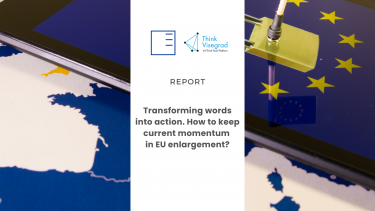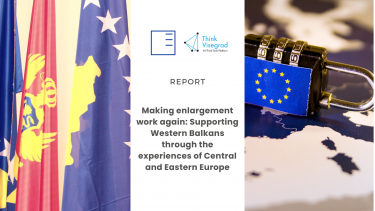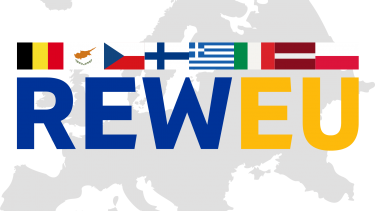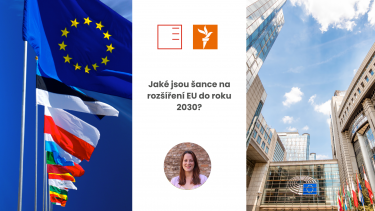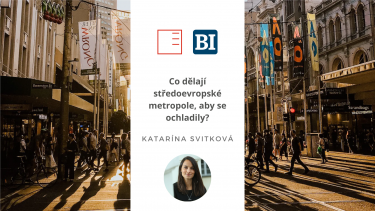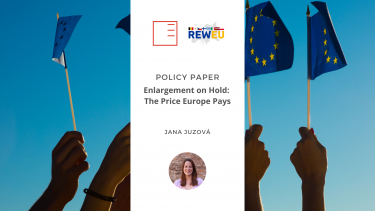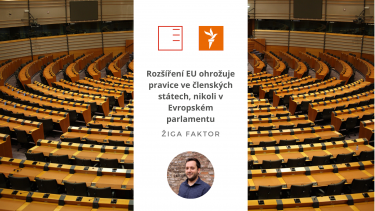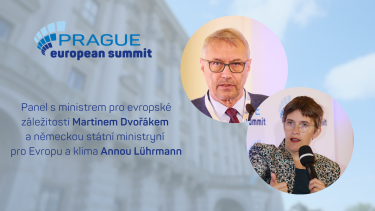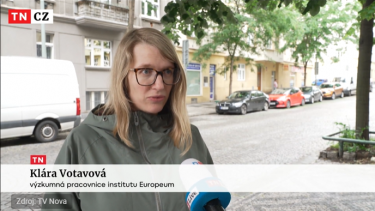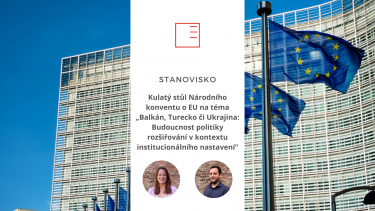Report | Transforming words into action. How to keep current momentum in EU enlargement?
On the 3rd of October, Think Visegrad in Brussels, represented by the Brussels Office of EUROPEUM Institute for European Policy, organized a discussion titled "Transforming words into action. How to keep current momentum in EU enlargement?". Experts from think tanks, diplomatic missions and EU institutions dwelled into the renewed focus on EU enlargement, including the initiation of accession negotiations with Ukraine and Moldova, the formulation of new strategies and financial incentives for candidate states, and reinforced commitments from the EU. The key challenge moving forward is ensuring that this momentum is sustained and translated into concrete, transformative actions that deliver measurable results.
Show more
Report | Making enlargement work again: Supporting Western Balkans through the experiences of Central and Eastern Europe
On September 12th, EUROPEUM’s Brussels Office organized a public conference titled “Making enlargement work again: Supporting Western Balkans through the experiences of Central and Eastern Europe”. Following a keynote speech by H.E. Bálint Ódor, the panel discussions dwelled on the 2004 enlargement, its impacts on the EU and the lessons learned from the process through the perspective of current EU accession of the countries of Western Balkans.
Show more
REWEU
The project (Re)uniting the East and West: Reflections on the 2004 EU enlargement (REWEU) is focused on the commemoration of the 2004 “big bang” EU enlargement at the occasion of its 20th anniversary in May 2024. This event had numerous positive effects on shaping Europe as we know it today, boosting its security, economic potential, and spreading democracy, good governance and European values across the European continent.
Show moreRadio Slobodna Evropa | What are the chances of EU enlargement by 2030?
The prospect of EU enlargement by the end of the mandate of the future European Commission looks more optimistic than at any time in the last decade. And barring the full membership of one new state, it is realistic to expect that at least one country will have concluded membership negotiations by the end of this decade and is just waiting for an acceptance date. Jana Juzová, a senior research fellow at EUROPEUM Institute, commented for Radio Slobodna Evropa.
Show moreBalkan Insight | City Heat: What Central European Capitls Are Doing To Keep Cool
With another heatwave expected this week following record temperatures in July, cities in Central Europe are belatedly taking action – but politics keeps getting in the way. Katarina Svitkova, an Associate Research Fellow at EUROPEUM Institute specializing on climate change, urbanism and sustainability, comments for Balkan Insight.
Show more
Policy Paper | Enlargement on Hold: The Price Europe Pays
How can the EU enlargement process regain its lost momentum? And how can we learn from previous rounds of enlargement? These questions are answered by a group of authors together with EUROPEUM Institute senior researcher Jana Juzová in a new publication within the REWEU project.
Show moreRadio Free Europe | EU Enlargement is threated by the far right parties in Member States, not in the European Parliament
Even thought parties belonging to the far right achieved good results in the European elections, their growth was not enough to have a major impact on politics in the future European Parliament. What developments can we anticipate with regard to the policy of enlargement of the EU after the elections? Žiga Faktor, deputy director and head of EUROPEUM Institute's Brussels office, comments on the situation for Serbia's Radio Free Europe.
Show more
PES 2024 | The EU must cooperate not only militarily, but also to defend itself against cyber attacks from Russia, said Minister Dvořák at the conference
The second day of the Prague European Summit 2024 conference at the Czernin Palace was opened with a speech by Czech Minister for European Affairs Martin Dvořák. He thinks of the enlargement of the European Union as crucial. "We have to realize that the enlargement of the EU, our defense and security and the current Central European position are interconnected," he said.
Show moreTN.cz | Possible changes in European subsidies
The European Parliament elections are less than two weeks away, and one of the main topics will be the subsidy system. A number of experts are calling for it to be changed, and questions arise as to where the European Union will get the money for subsidies. The transformation of the EU towards green technologies could limit financial resources for structural funds, which would have a negative effect mainly on poorer countries, including the Czech Republic. Economists also point to possible financial problems for the EU after the departure of Great Britain, one of the biggest contributors. Klára Votavová, a researcher at the EUROPEUM Institute, commented on the situation for TV Nova.
Show morePosition | National Convention Round Table on the EU
How to improve the EU enlargement process? How to ensure that the democratising effect of the accession process is sustained beyond the eventual accession to the EU? And are EU institutional reforms a necessary condition for EU enlargement? Answers to these and other questions are offered by the EUROPEUM Institute for European Policy's contribution to the National Convention on the EU's roundtable on Balkans, Turkey or Ukraine: the future of enlargement policy in the context of institutional settings.
Show more
Staroměstské náměstí 4/1
Prague 1 - Staré Město
110 00
tel.: +420 212 246 552
email: europeum@europeum.org
https://www.europeum.org
